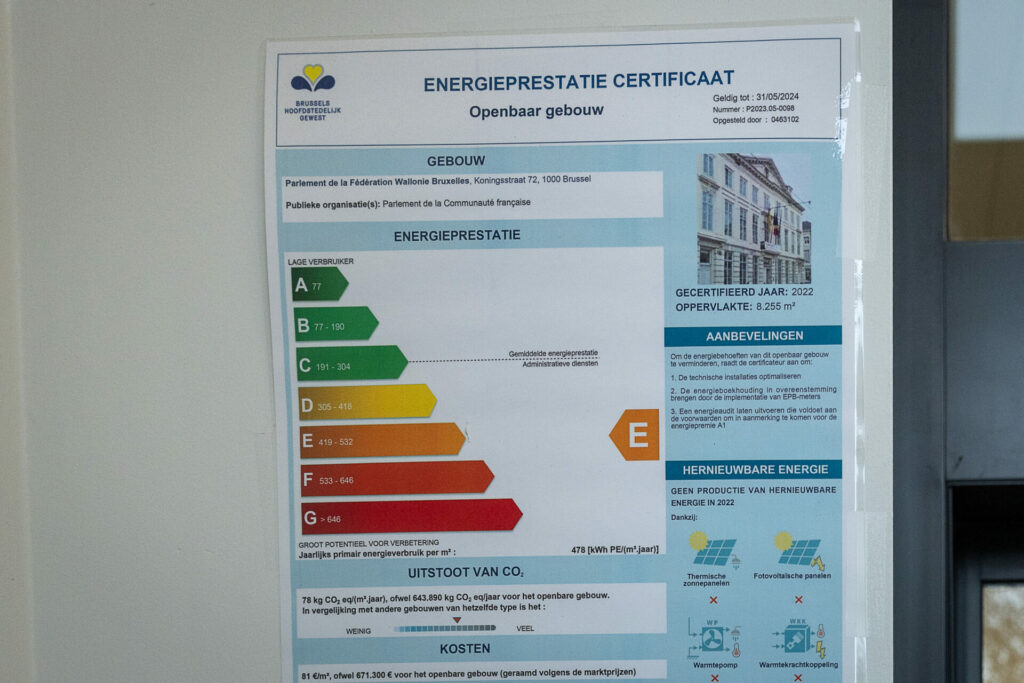The EPC (energy performance certificate) score of properties in Belgium is increasingly impacting their selling price, though in Brussels to a lesser extent then elsewhere in the country.
In light of unstable energy prices and increased efforts by households to reduce energy consumption, properties with a good EPC score (ABC) are increasingly sought after. The score indicates the energy consumption per square metre of floor area (kW/m²); the lower it is, the more energy-efficient the home is and the lower the energy costs.
A recent study by Immoweb showed that this score has a major effect on how much the property will fetch on the property market.
"The increasing importance of the EPC score as a decisive criterion in the buying process is clear from an analysis of price trends for different scores since January 2022," the company noted.
Location and build quality
In Flanders, the results show that houses with an A-score are on average 14.4% more expensive than houses with similar characteristics with a D-score. Price-wise, people buying a house with the highest EPC score have to invest on average €69,000 more compared to a similar house with the lowest score.
The difference is even greater in Wallonia, where a house with an A-score is on average 15.8% more expensive than a similar property with a G-score. However, as properties are cheaper here, the cost difference between a house with the highest and lowest score is €59,000 on average.
In Brussels, the EPC scale is stricter with the result that 41% of properties for sale in the region have a poor ranking. Houses with A and B scores are scarce: in the past 12 months, only 0.7% of Brussels homes on Immoweb had an A-score, while those with a B-score made up only 1.5%.
"This precludes the possibility of direct comparisons," Immoweb notes. However, it found that a flat with a B-score costs €36,500 more than the same property with a G-score, and €21,000 compared to a flat with a D-score.
Provided 41% of homes in Brussels have a G-score, they can be compared correctly. These properties cost on average 5.4% less than comparable houses with a D-score. Overall, Immoweb found that when it comes to comparing properties with the lowest scores, the effect is slightly more minimised.
In Flanders, houses with an F-score (the lowest score in the region) are on average 6.7% cheaper than their counterparts with a D-score. In Wallonia, houses with a G-score are on average 8.9% cheaper.
Prices rising faster
In both Flanders and Wallonia, properties with a high EPC (ABC) score have seen their prices rise more than twice as fast as those with a lower score.
In Wallonia, since January 2022, properties (houses and flats combined) with an A, B or C score saw an average price rise of 7.6%. For properties with a D or E score, the increase is 4.1%, while for those with an F or G score, the increase is only 2.8%. In Flanders, the increase was 8.4%, 6.4% and 3.9%, respectively.
However, in Brussels, these differences in price trends were less pronounced. Over the past 12 months, homes with a good EPC score experienced a more modest increase of 1.8%. For homes with an EPC score of D and E, prices have even declined slightly (-0.3%).
"Deteriorating financing conditions have slowed down price growth. This is partly due to more limited purchasing power explained by more expensive prices than in the rest of the country," Immoweb concluded.

